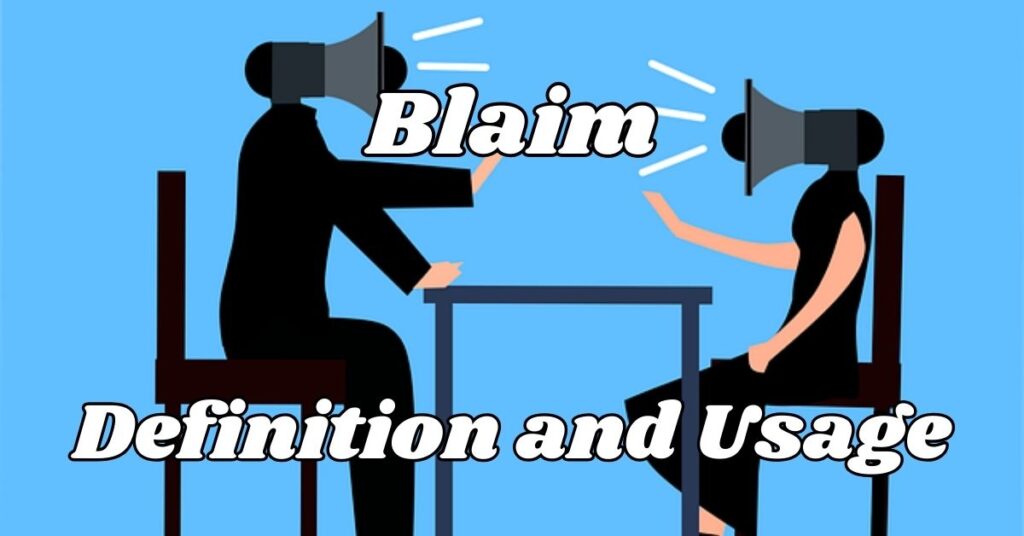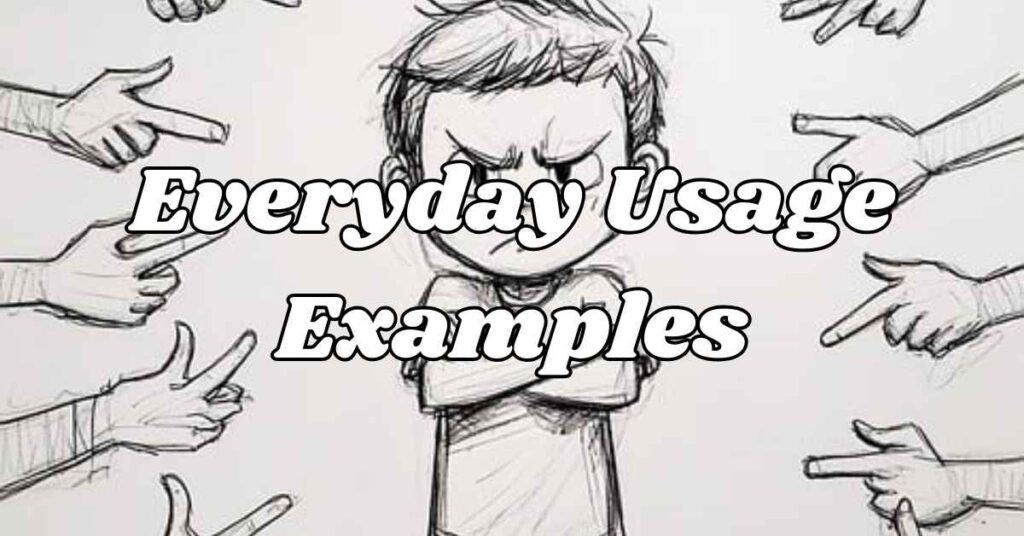Blaim vs Blame: This common spelling confusion deserves clarification. This article explores the correct spelling and usage of “blame,” addressing the frequent misspelling “blaim.” We’ll delve into “blame“‘s etymology, revealing its origins.
Beyond spelling correction, we’ll analyze the nuances of “blame” meaning and its implications for accountability and responsibility. We’ll also offer practical tips to avoid such spelling errors, ensuring clear communication. Understanding the “blaim or blame” difference is crucial for effective writing.
This exploration covers everything from attribution and fault to the complexities of blame assignment, emphasizing the importance of proper spelling and word usage for conveying the intended meaning.
Quick Summary
This article tackles the common spelling confusion between “blaim” and “blame.” We definitively establish “blame” as the correct spelling, exploring its meaning, origins, and proper usage.
We examine why “blaim” occurs as a misspelling, offering insights into common spelling errors. Furthermore, we provide practical tips to avoid such mistakes, emphasizing the importance of accurate spelling for clear communication.
This guide serves as a valuable resource for anyone seeking to master the correct usage of “blame.”
Understanding Blaim vs Blame

The distinction between “blaim and blame” is straightforward: “blame” is the correct spelling, while “blaim” is a misspelling. This article clarifies this difference, focusing on the proper use of “blame.”
We will explore the word’s meaning, its etymological roots, and why the misspelling “blaim” is so prevalent. Understanding this difference is crucial for effective communication and avoiding writing errors.
Origins of the Word Blame
“Blame,” meaning to find fault or assign responsibility for wrongdoing, originated around 1200. It derives from Old French “blasmer,” meaning to rebuke or condemn, and ultimately from Late Latin “blasphemare,” which encompassed both blasphemy and general reproach.
Around the same time (c. 1200), it also carried the meaning of “find fault with,” contrasting with praise. The word replaced the older Old English term “witan.” Related forms include “blamed” and “blaming.”
Why would we misspell “blame” as “blaim”?
Misspellings often arise from phonetic similarities. “Blaim” sounds like “blame,” making it a common error. This phonetic similarity, coupled with a lack of attention to spelling, contributes to the misspelling.
Understanding this common cause can help individuals become more aware of the potential for error and improve their spelling accuracy.
Blame: Definition and Usage

“Blame” means to assign responsibility for something negative, such as a mistake, wrongdoing, or failure. It can also involve expressing disapproval or criticism.
The concept of blame is central to accountability and plays a significant role in interpersonal relationships, legal proceedings, and ethical considerations.
Blame Meanings
“Blame” carries diverse meanings, ranging from mild disapproval to severe condemnation. It can signify assigning responsibility for a mistake, fault, or wrongdoing. “Blame” can also imply censure, reproach, or criticism.
The specific context dictates the intensity and nature of the blame being expressed. Understanding these nuances is crucial for accurate interpretation.
How to pronounce “blame”
The correct pronunciation of “blame” is /bleɪm/. The “b” is pronounced as in “boy,” the “l” as in “light,” the “a” as in “name,” and the “m” as in “man.” Proper pronunciation is essential for clear communication and avoiding misunderstandings. Practice saying the word aloud to ensure accuracy.
Blame Usage in Sentence
“Blame” functions as both a verb and a noun. As a verb, it signifies assigning responsibility for something negative. For instance: “The coach blamed the team for their poor performance.” As a noun, it refers to the act of assigning responsibility or the resulting condemnation.
For example: “He accepted the blame for the miscalculation.” Understanding these dual roles is crucial for using “blame” correctly in various contexts. Consider the subtle differences in meaning when using “blame” as a verb versus a noun.
Synonyms of Blame
Expanding your vocabulary enhances your writing. Here are few synonyms for “blame“:
- Accuse
- Censure
- Reproach
- Condemn
- Criticize
- Denounce
- Impeach
- Hold responsible
- Reprimand
- Rebuke
Blaim: Definition and Usage

“Blaim” is not a recognized word in standard English dictionaries. It is a misspelling of “blame” and carries no legitimate meaning or usage. Therefore, “blaim” should never be used in formal or informal writing.
Its appearance in the text indicates a spelling error and detracts from the writer’s credibility. Always double-check your spelling to ensure you are using the correct form, “blame.”
Blaim Meanings
Because “blaim” is not a valid English word, it has no established meaning. Any perceived meaning attributed to “blaim” is simply a reflection of the intended meaning of the correctly spelled word, “blame.”
There are no legitimate contexts in which “blaim” carries a distinct or recognized meaning. Relying on “blaim” will lead to miscommunication.
Blaim Usage in Sentence
Due to its non-existent status as a valid English word, “blaim” should never be used in a sentence. Attempting to incorporate “blaim” into a sentence will result in a spelling error and likely confuse the reader.
Always use the correct spelling: “blame.” This will ensure clarity and professionalism in your writing.
Side by Side Comparison
| Feature | Blame (Correct) | Blaim (Incorrect) |
| Spelling | Correct | Incorrect |
| Meaning | Exists | Does not exist |
| Usage | Common | Never |
Everyday Usage Examples

“Blame” is a common word used in various everyday situations. We hear it in news reports (“Officials are assigning blame for the accident”), casual conversations (“Don’t blame me!”), and formal discussions (“The report outlines the blame for the company’s losses”). Its prevalence underscores the importance of proper usage.
Blame Example of Blame in Context
“The official report assigned blame to the construction company for the bridge collapse.” This example demonstrates the use of “blame” within a specific context.
It illustrates the assignment of responsibility for a negative outcome, emphasizing the word’s connection to accountability and consequences. Such examples solidify understanding of proper “blame” usage.
Other common misspellings of “blame”
Beyond “blaim,” other frequent misspellings of “blame” include “blamee,” “blamed” (when incorrectly used as a noun), and “blam.” These errors often stem from phonetic similarities, carelessness, or confusion with other words.
Employing a spell checker and careful proofreading can significantly reduce the occurrence of these mistakes, ensuring more polished and professional writing.
Common Mistakes To Avoid
A common mistake is confusing “blame” with “fault.” While related, they’re distinct. “Fault” denotes responsibility for an error, while “blame” is the act of assigning that responsibility.
For example, someone might be at fault for an accident, but another person might blame them for it. Understanding this distinction is crucial for clear communication.
Tips to Avoid Spelling Mistakes
- Use a spell checker.
- Proofread carefully.
- Consult a dictionary.
- Practice writing the word correctly.
More Article: Too Cute vs To Cute: What’s the Difference
FAQ’s: Blaim vs Blame
Is it Blaim or Blame?
It is “blame.” “Blaim” is a misspelling and not a recognized word in standard English.
What does blam mean in slang?
“Blam” in slang can be an onomatopoeia for a loud, sudden noise, like a gunshot. It doesn’t relate to the word “blame.”
Why is blame so toxic?
Unconstructive blame focuses on assigning fault rather than finding solutions, damaging relationships, and hindering growth. It can create defensiveness and resentment.
Conclusion
In the blaim vs blame debate, clarity reigns supreme. “Blame” stands as the correct spelling, while “blaim” remains a common misspelling. Understanding this distinction is crucial for effective communication.
This exploration of “blame,” its etymology, and proper usage reinforces its importance in assigning responsibility and expressing accountability. By avoiding the misspelling “blaim” and embracing the correct form, writers enhance their credibility and ensure clear conveyance of their intended message. Remember, accurate spelling is essential for polished and professional writing.
Related Post: Togather or Together: What’s the Difference?

